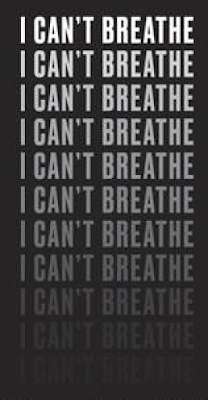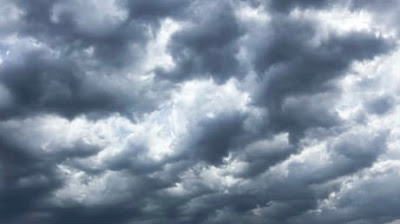 |
| "Time waits for no man,” watercolor by SuayaArt. |
Today's News . . . Today's Poem
The New Verse News
presents politically progressive poetry on current events and topical issues.
Guidelines
Submission Guidelines: Send 1-3 unpublished poems in the body of an email (NO ATTACHMENTS) to nvneditor[at]gmail.com. No simultaneous submissions. Use "Verse News Submission" as the subject line. Send a brief bio. No payment. Authors retain all rights after 1st-time appearance here. Scroll down the right sidebar for the fine print.
Monday, December 14, 2020
OLD GUY AWAITS VACCINE
Wednesday, November 18, 2020
HARBINGER
Wednesday, November 04, 2020
NOVEMBER 3RD
America is tired.
We’re a colony of ants
who’ve stopped in a pothole
on this long road ahead
to eat the bread crumbs off our backs.
Tonight I hope for hope.
I don’t know what the next
morning will bring
but if we wake up to a sky full of clouds,
I hope we’ll still remember
that this sun of ours isn’t going anywhere
and neither are we.
Austin Davis is a poet and student activist currently studying creative writing at ASU and leading a homeless outreach program in Phoenix. Austin is the author of The World Isn’t the Size of Our Neighborhood Anymore (Weasel Press, 2020) and Celestial Night Light (Ghost City Press, 2020).
Friday, October 23, 2020
TODAY
Thursday, August 27, 2020
THE LONG PAUSE
 |
| Illustration: Craig Stephens, The South China Morning Post, August 16, 2020 |
The night descended
an oiled slickness
thick black sludge
and it stayed on
not draining itself
into the blue day
we didn't know why
we had to wait
wait, fight, wait
we were all boxed up
and boxed in
alone
together
piled up in stacks
and in the silence
that lasted for years
we all had to shut
ourselves down
breathe through holes
sometimes killing
choking someone
for their air
for their silence
the cruel darkness
like a hard migraine
full of daggering jolts
of lost sunshine
so much existential pain
we stuck to shadows
'til all light was gone
and nothing
beautiful
left
to see
for ourselves
the energy it took
to shepherd ourselves
and everyone else
to come close
to conspire
to fling ourselves
out of the dark nest
the safety boxes
we had been placed in
like blind chicks
we didn't know why
we knew
we had to decamp
breaths held
the countdown:
November 1
November 2
November 3…
and we decanted
a vast gushing
pushing us all out
every single one of us
free flowing
from a fogged dream
of lonely sleepwalkers
unable to see the depth
skating on the surface
like insects, pond skippers
but now we dove deep
into our inventory of loss
the trappings of despotism
saying no, no
no more
and we were cresting
in violent surges
flooding our grief
hammered out
the cheap walls
the stockade of lies
the prison of secrets
the years of self-harm
bursting seams
breaking up
shattering, scattering
into the brightness
the blue sky world
we had always known
as American
life.
Saturday, June 06, 2020
THE DOOR
There is a door—
someone has left it open
just a little bit
so a band of light
runs along the floor
to where we stand in the dark
touches the feet
of the first in line
I can tell this makes them happy
even though their backs are to me
something about the relaxed
line of their shoulders
the ease of the way they turn their heads
this way
then that
confident
it won't be long now
The band of light
doesn't touch my feet—
I'm about halfway down the line
even if I stood on tiptoe
or craned my neck to one side
I couldn't get a good view
through the door
So I look at the line—
it starts out white with reflected light
then gets darker and darker
the further away it reaches
down the dim hall where we wait—
the first in line are clear cut
their collars
their buttons
outlined in light
but the ones behind me blur
into a single
black
unmoving
cloud
I wait for someone to step out of this cloud
to show me details
beautiful details
of finger and face
soft lips
the curve of forehead
I wait for the music
of speech
laughter
for an empty space
inside me
to fill
Then I feel it
a weight
in the space that is not empty
a weight that shifts
like a child
impatient to be born—
then it kicks
something bursts
and I see
hundreds of eyes meeting mine—
candles, stars, constellations...
we all move at the same time and the line
is broken
Katherine West lives in Southwest New Mexico, near the Gila Wilderness, where she writes poetry about the soul-importance of wilderness, performs it with her musician husband, Yaakov, and teaches seasonal poetry workshops that revolve around "wilderness writing." She has written three collections of poetry: The Bone Train, Scimitar Dreams, and Riddle, as well as one novel, Lion Tamer. Her poetry has appeared in journals such as Lalitamba, Bombay Gin, and TheNewVerse.News which recently nominated her poem "And Then the Sky" for a Pushcart Prize.
Wednesday, June 03, 2020
THRENODY
 |
| Detail of the Cover of I Can't Breathe: A Killing on Bay Street by Matt Taibbi. |
In America now
We can watch real murders
On TV
Then wait for officials to decide
Whether officers
Were justified
In killing the black man
As he lay handcuffed and helpless
Face down on the pavement.
In America now
We can listen to news reports
About whether there might be evidence
That the unarmed black jogger
Behaved in a way
That was threatening in some fashion
To the heavily armed
Father and son
Who jumped out of their pickup truck
And gunned him down.
In America now
We can watch videos
In which white people call the cops
On black children mowing lawns
In the wrong neighborhoods,
On black professionals
Who “seem suspicious”
Entering the lobbies
Of the condominiums where they live,
On black walkers who remind them
To leash their dogs.
In COVID America now
Black people are dying of the virus
At three times the rate
Of whites,
Black people are incarcerated
At six times the rate of whites
Black people are unemployed
At twice the rate of whites.
“I can’t breathe!” cried Eric Garner
For four hundred years.
“I can’t breathe!” cried George Floyd
For four hundred years.
“I can’t breathe!” cry black children
From broken and polluted neighborhoods,
From decaying and crumbling schools.
“I can’t breathe!” cry black parents
From hospital emergency rooms
Holding sons and daughters
In their laps
Who are dangerously ill
Because mom and dad could not afford
Early and dequate health care.
“I can’t breathe!” cry young black couples
Unable to rent or buy homes
And begin family life
In neighborhoods
Where the unspoken understanding
Is “whites only.”
“I can’t breathe!”
“I can’t breathe!”
“I can’t breathe . . .”
Buff Whitman-Bradley's poems have appeared in many print and online journals. His most recent books are To Get Our Bearings in this Wheeling World and Cancer Cantata. With his wife Cynthia, he produced the award-winning documentary film Outside In and, with the MIRC film collective, made the film Por Que Venimos. His interviews with soldiers refusing to fight in Iraq and Afghanistan were made into the book About Face: Military Resisters Turn Against War. He lives in northern California. He podcasts at: thirdactpoems.podbean.com .
Thursday, May 21, 2020
UNMASKING PROCEDURES
with language borrowed and adapted from the U.S. Army “Soldier’s Manual of Common Tasks” (Skill Level 2)
 |
| In this DOD photo from 2012, “Bushmaster” soldiers receive refresher training on the proper wear of the field protective mask and the Joint Service Lightweight Integrated Suit Technology protective garment, and gain confidence in their equipment by unmasking in a gas chamber at Fort Stewart, GA. Photo by Sgt. Mary Katzenberger |
Note: Before conducting unmasking procedures,
make every effort to otherwise confirm
the absence of contamination.
Note: The senior person present selects one or two
soldiers to unmask.
Note: It is best to disarm the people selected
prior to ordering them to unmask.
1.
Conduct unmasking procedures in the shade.
2.
Direct selected individuals to each take a deep breath,
to break the seals of their masks (keeping their eyes open)
for 15 seconds, and to then again seal and clear their masks.
3.
Observe for 10 minutes.
4.
If no symptoms appear, direct the individuals
to unmask for 5 minutes
and to then again don, seal, and clear their masks.
5.
Observe for 10 minutes.
6.
If no symptoms appear, direct everyone to unmask.
7.
“All-clear.” Go back to work. “Re-open the economy.”
Shake hands. Get a haircut. Kiss.
8.
Observe for delayed symptoms.
Note: You might have to wait a couple of weeks
just to be sure.
Sunday, January 19, 2020
TASHONNA
black. healthcare. matters.
she died from
their silence, from
sealed lips and silicone gloves that
pushed
her aside—her
pulse would have kept pushing,
but they put her
on pause.
Thursday, October 22, 2015
ON RED
 |
| Relatives of soldiers killed in Iraq have claimed a partial victory after Sir John Chilcot announced he would finally set a timetable for his report on the six-year inquiry into the war. The retired civil servant’s announcement came just days before the expiry of a deadline set by grieving families of some of the 179 British soldiers killed in action, after which they had threatened to take legal action if he refused to set a release date. It is more than a month after Chilcot finally confirmed the end of a lengthy right-of-reply process for those criticised in the report, known as Maxwellisation, which had been seen as the final obstacle to its publication. —The Guardian, October 15, 2015 |
A misty arc of rainlight spans the sky
between the darkest
and the brighter clouds
whose shifting moods drift over
a city whose lost dogs run
in circles and whose doves flock back
together when a shower ends.
There’s a man by every traffic light
with a sign that says he’s had bad luck, please help,
and a world of music
inside every car that stops beside him
to drown the misery out
interrupted by a bulletin
of news announcing a delay
in peace negotiations, suspended
talks on reducing pollution,
and the latest postponement
of the report’s release
that tells who lied about invading
Iraq, while there isn’t enough
patience to go around, not even
here, where a pedestrian pushes a button
four times to ask to cross the road
and the mechanical voice repeats
wait, wait, wait, wait . . .
so he pushes again
wait, wait . . .
David Chorlton is a transplanted European, who has lived in Phoenix since 1978. His poems have appeared in many publications on- and off-line, and reflect his affection for the natural world, as well as occasional bewilderment at aspects of human behavior. His most recent book, A Field Guide to Fire, is his contribution to the 2015 Fires of Change exhibition shown in Flagstaff and Tucson in Arizona.




